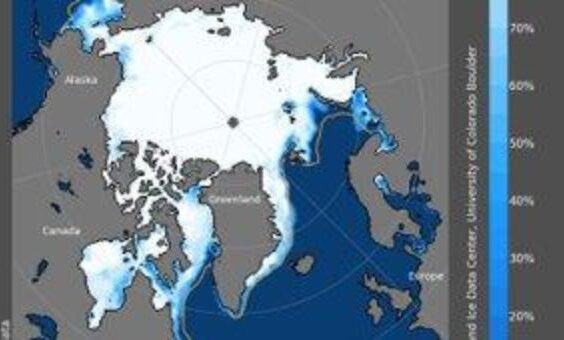Russia Activates World’s First Satellite System for Arctic Monitoring
Key Takeaway
Russia has launched the world’s first dedicated Arctic observation satellite system, aimed at providing round-the-clock monitoring of the Arctic region, supporting navigation and shipping along the Northern Sea Route, as well as facilitating hydrocarbon exploration.
Summary
- Over the weekend, Russia activated the world’s first Arctic observation satellite system, drawing data from the two Arktika-M satellites launched in 2021 and 2022.
- The new satellite constellation provides continuous meteorological and environmental monitoring of the Arctic surface and the Northern Sea Route.
- Russia has created a hydro-meteorological space system that allows permanent observation of the Arctic regions and its adjacent territories, a first in the world.
- The complete Arktika mission constellation is planned to eventually have 10 Earth-orbiting satellites, including communication, GPS, commercial, and remote sensing satellites.
- The satellites will be placed in a Highly Elliptical Orbit (HEO), ensuring full-time coverage of the high latitudes, which is not provided by existing international geostationary satellites.
- The Arktika system will also be used for hydrocarbon exploration, aligning with Russia’s ambition to intensify exploitation of the Arctic’s oil and gas resources.
- Importantly, the space system will provide telecommunications services in the Arctic, which Russia needs for air traffic and commercial shipping in the remote region.
- Russia has heavily invested in the development of the Northern Sea Route, hoping it could become an alternative shipping route as sea ice in the Arctic recedes, shortening the distance between the Far East and the West compared to the Suez Canal route.

Russia Activates World’s First Satellite System for Arctic Monitoring
In a bold move to assert its dominance in the Arctic region, Russia has launched the world’s first dedicated Arctic observation satellite system. This groundbreaking initiative aims to provide round-the-clock monitoring of the vast and rapidly changing Arctic landscape, supporting navigation and shipping along the strategic Northern Sea Route, as well as facilitating hydrocarbon exploration.
The Arctic has long been a region of intense interest and competition among nations, driven by its vast untapped natural resources and the potential for new shipping routes as sea ice melts due to climate change. Russia, with its extensive Arctic coastline, has consistently sought to strengthen its presence and control in this strategic area.
Over the weekend, Russia activated its Arctic observation satellite system, drawing data from the two Arktika-M satellites launched in 2021 and 2022. This new constellation provides continuous meteorological and environmental monitoring of the Arctic surface and the Northern Sea Route, a crucial shipping lane that Russia hopes will become a viable alternative to the Suez Canal route.
The complete Arktika mission constellation is planned to eventually have 10 Earth-orbiting satellites, including communication, GPS, commercial, and remote sensing satellites. These satellites will be placed in a Highly Elliptical Orbit (HEO), ensuring full-time coverage of the high latitudes, which is not provided by existing international geostationary satellites.
One of the key objectives of the Arktika system is to facilitate hydrocarbon exploration in the Arctic, aligning with Russia’s ambition to intensify the exploitation of the region’s oil and gas resources. Additionally, the space system will provide crucial telecommunications services in the Arctic, essential for air traffic and commercial shipping in this remote and challenging environment.
Russia has heavily invested in the development of the Northern Sea Route, a shipping lane that runs along the Siberian coastline. As sea ice in the Arctic continues to recede due to climate change, Russia hopes that this route could become a viable alternative to the Suez Canal, significantly shortening the distance between the Far East and the West.
While Russia’s Arctic ambitions are undoubtedly bold, they also raise concerns about the potential environmental impact of increased economic activity in the fragile Arctic ecosystem. Additionally, the militarization of the region and the potential for conflicts over territorial claims and resource extraction rights remain ongoing issues.
Despite these challenges, Russia’s commitment to advancing its Arctic capabilities is clear. The launch of the world’s first dedicated Arctic observation satellite system represents a significant technological and strategic milestone, positioning Russia as a leader in this rapidly evolving frontier.
HASHTAGS:
#Arctic, #Russia, #Satellites, #NorthernSeaRoute, #Exploration, #ClimateChange, #Shipping, #RemoteSensing, #Telecommunication, #SpaceTechnology
Source: teleSUR English Link: Read more